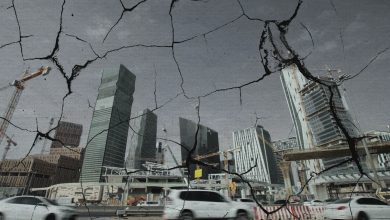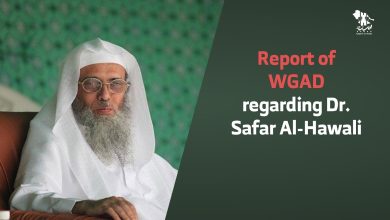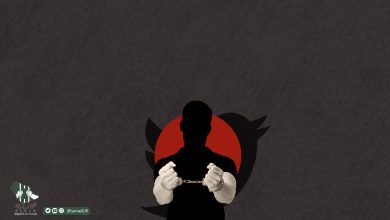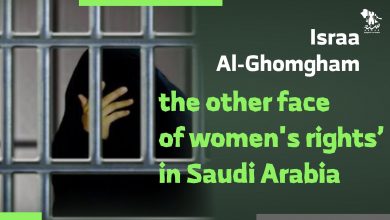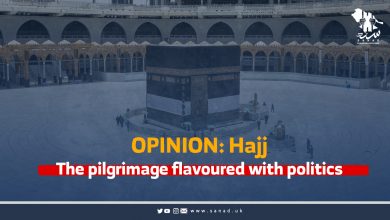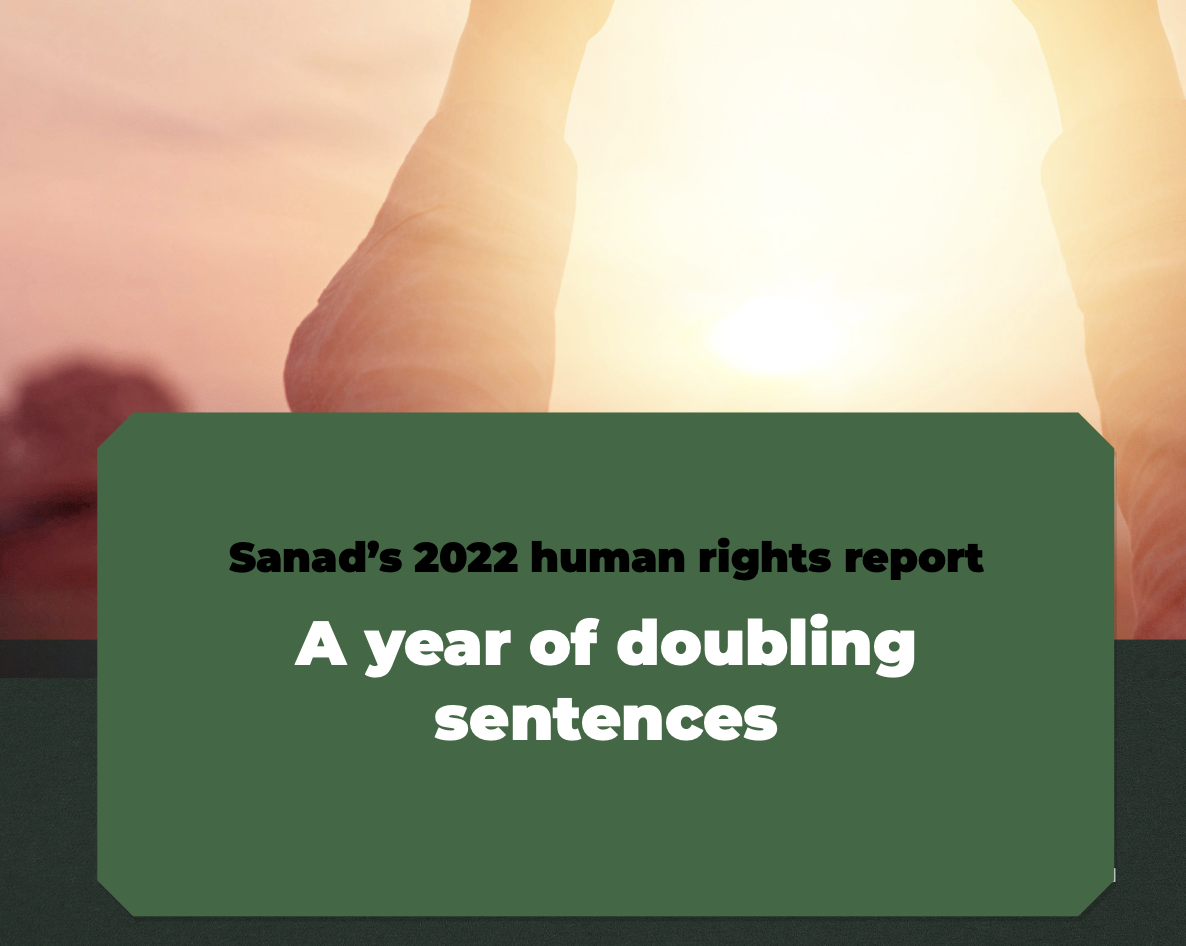
Sanad Annual Report for 2022
A Year of Doubling Prison Sentences
Sanad publishes its annual report for 2022 “A Year of Doubling Sentences”. Sanad shed light on the human rights situation in the Kingdom of Saudi Arabia during the year 2022 and the violations it closely monitored against the people. Doubling and extending prison sentences has been the main theme in the human rights situation in Saudi Arabia, and a dangerous precedent that reveals horrendous times that human rights situation is facing in the Kingdom. This is a summary of the report. Please click here to download the full records events and in detail.
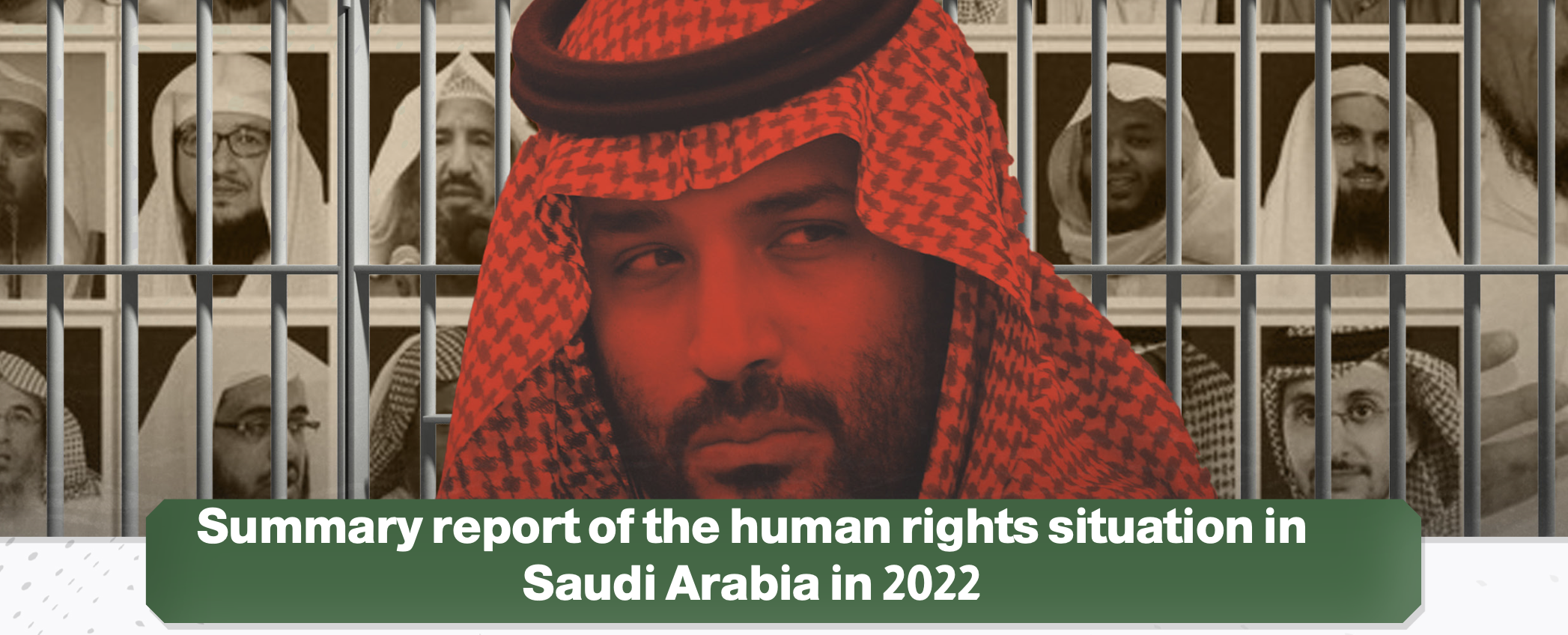
At the end of 2021, some of the political isolation that Saudi Arabia was experiencing, following the killing of Saudi journalist Jamal Khashoggi in the Saudi consulate in Istanbul, began to diminish. The murder of Khashoggi had led to Crown Prince Mohammed bin Salman being isolated internationally, not least with the release of human rights reports, together with media and intelligence reports, which confirmed the Prince’s role in Khashoggi’s assassination. Since then, the international community chose to prioritise national interests over human rights and justice.
This was striking in the first quarter of 2022. First there was the visit of the then British Prime Minister, Boris Johnson, on 12 March 2022. On the day of the visit, Saudi Arabia carried out the largest mass execution in the country’s history. 81 citizens were executed on charges relating to freedom of opinion and expression. This was despite the Crown Prince asserting that the executions were a punishment for the killing of an individual. The Specialised Criminal Court also issued ten other death sentences against several prisoners of conscience.
Boris Johnson’s visit was followed by the visit of US President, Joe Biden, and then by the German chancellor, Olaf Scholz. All of these visits, with their attempts to end the political isolation of the Saudi Crown Prince by the West, were a cheap trade between political and economic interests and justice, freedom and human rights. These diplomatic changes in international relations between Saudi Arabia and several countries gave Prince Mohammed bin Salman a green light to commit more violations and serious transgressions.
Sanad Organization has monitored the Saudi authorities’ continued detention of a number of citizens without clear charges or on charges related to freedom of expression. Sanad has also monitored the security authorities’ enactment of arrest campaigns against elite academics and activists from the country. During 2022, 48 such individuals were arrested, most notably Dr Abd al-Rahman bin Yusuf al-Rahma, the reciter Abd al-Majid al-Arkani, Imran al-Arkani, and Professor Muhammad bin Mohsen Basra. Recently, the names of 10 other activists previously detained were also discovered, including Dr Abdullah Marouf, Musa Omar Ali Ghazi, and Abdullah bin Saeed Thuwaini.
One of the violations detainees were subjected to was transfer to a psychiatric ward, putting their lives at risk. Mohammed al-Qahtani was physically assaulted by a prisoner whilst he slept following his transfer to such a ward.
Quite notably last year, a number of detainees were subjected to retrials following the end of their sentences or had their sentences increased without legal justification. Sanad documented the doubling of sentences for several detainees, including Sheikh Khaled al-Rashed, Osama Filali, Dr Mohammed al-Hudhaif, Dr Saud al-Fennisan, Noura al- Qahtani, Abd al-Majid al-Arkani, as well as others.
In continuation of the campaign of persecution of the Al-Hwaitat tribe, Sanad monitored the issuance of new long-term sentences by the Specialised Criminal Court against the youth of Al-Hwaitat. A 27-year prison sentence was issued against Abdel Nasser Ahmed al-Hwaiti; his son, Ahmed Abdel Nasser al- Hwaiti, received a 20-year sentence; a 35- year prison sentence was passed against Mahmoud Ahmed al-Hwaiti; a 50-year prison sentence was passed against Abdullah al- Hwait and also against Abdullah Dakhil al- Hwaiti. Sanad also monitored the criminal court’s issuance of death sentences for the minors, Abdullah al-Hwaiti, Atallah al-Hwaiti, Ibrahim al-Hwaiti and Shadi al-Hwaiti, on charges related to protesting their forcible removal from their homes.
Despite the fact that the Saudi authorities released some detainees following the end of their sentence, such as Fahd al-Sunaidi, Abdul-Rahman al-Arifi, and others, their release was accompanied by travel bans for the same period as their incarceration. Sources confirmed to Sanad that the number of those banned from travel exceeded 70,000 citizens, both male and female, including the families of detainees, activists, and dissidents, as well as families from the Al Saud family itself and those close to it.
Occasionally, inmates’ release was related to their health conditions, as happened with Dr Abdulaziz al-Zahrani. Sanad received confirmation that the reason for his release was that he was suffering with cancer. His health had deteriorated significantly as a result of medical negligence and neglect in prison.
The use of the death penalty in 2022 confirms that it is a tool used by the government for political blackmail and repression against their political opponents. Sanad believes that the executions carried out during the year lack transparency and integrity of procedures. They were a means by which the regime terrorised people and prevented from claiming their basic rights. This was confirmed by the United Nations High Commissioner for Human Rights. They stated that their monitoring systems indicate that “some of those executed were sentenced to death following trials that did not meet fair trial and due process guarantees, and for crimes that did not appear to meet the most serious crimes threshold, as required under international law”. The UN Commissioner for Human Rights condemned this crime.
Sanad monitored the Saudi regime’s continued demolition and removal operations in Jeddah, which the regime insisted is paving the way for development projects. However, these operations have caused the forced displacement of thousands of citizens from the neighbourhoods of Jeddah, which is estimated by data from human rights organisations to have affected more than 72,000 people. Hundreds of families have already become homeless. The authorities did not provide them with alternative homes before their eviction, nor did they compensate them enough to buy or rent alternative homes. In addition, the suffering of more than a quarter of a million Bedoons (stateless citizens) in Saudi Arabia continues, with the deprivation of their most basic civil rights. They continue to endure marginalisation, government brutality, racism, and segregation, all of which ensures their continued suffering.
Sanad monitored the violations that faced the orphans of Khamis Mushait, where a group of security forces violently assaulted the girls inside an orphanage. Despite the horrific violation, authorities did not express any constructive response to the incident except for a statement to open an investigation, the results of which are not known.
Sanad monitored the regime›s continued violation of press freedoms through the arrest of dozens of journalists, such as Malek al- Ahmad, Khaled al-Alkami, Zuhair Kutbi, Zana al-Shehri, Abdullah al-Maliki and others. Sanad also documented how the Saudi authorities prevent certain people from performing Hajj (pilgrimage) because of their views on some issues or because of the opinions that they have expressed. In addition, the authorities have lured some pilgrims to the country by granting them visas for Hajj and Umrah, only to arrest them upon their arrival and deport them to countries where their lives are in danger. Among them is the Uyghur religious scholar Hamdallah Abd al-Wali and his friend Normit Rozi. Within this context, Sanad called upon human rights organisations to participate in the “Hajj is not safe” campaign.
These events confirm that Crown Prince Mohammed bin Salman is intent on crushing any form of dissent in the most brutal of fashion, all with the apparent unwillingness or inability of the international community to expose the human rights violations carried out in his name.
To access the full report please click here


